|
|
|
|
Nau mai haere mai – and welcome to this week’s newsletter.
With yesterday’s record case numbers and the government’s imminent announcement on the path forward, it feels like we’re all in a kind of waiting room. Naturally, that’s left plenty of time for speculation and anxiety, especially about how well this complex stage of the pandemic is being managed.
But as Massey University’s Suze Wilson writes, what might appear messy and reactive can, in fact, be looked at another way. What have been called “wicked” or “adaptive” problems often call for so-called “clumsy” leadership – the kind Jacinda Ardern has been exhibiting lately as she responds to the ever-shifting demands of the Delta outbreak.
While we wait, it’s worth shifting the focus away from the pandemic to promising developments elsewhere, such as last week’s recognition by the UN Human Rights Council of the right to a healthy environment. It’s not a legally binding right, but neither is it useless.
As University of Waikato academic lawyer Nathan Cooper writes, it comes on the eve of the UN climate summit in Glasgow and could offer a new lever for achieving big changes in the small window of time we have left.
As always, you’ll find much more to read in this newsletter and on our home page. Thank you for your ongoing interest and support - until next time, mā te wā.
|

|
Veronika Meduna
New Zealand Editor: Science, Health + Environment
|
|
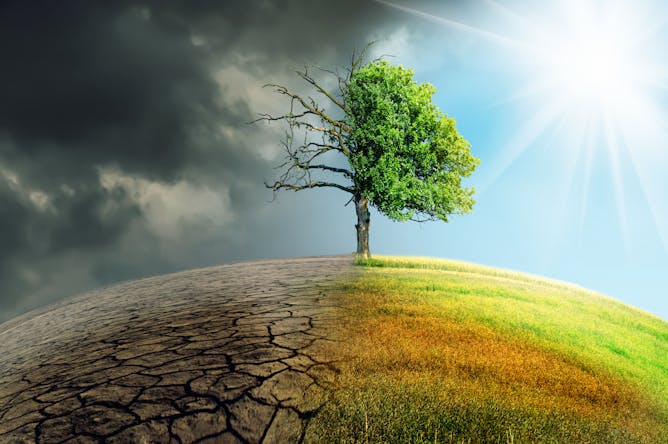
Shutterstock
Nathan Cooper, University of Waikato
In countries where the right to a healthy environment is part of domestic law, court decisions are already resulting in stronger climate action.
|
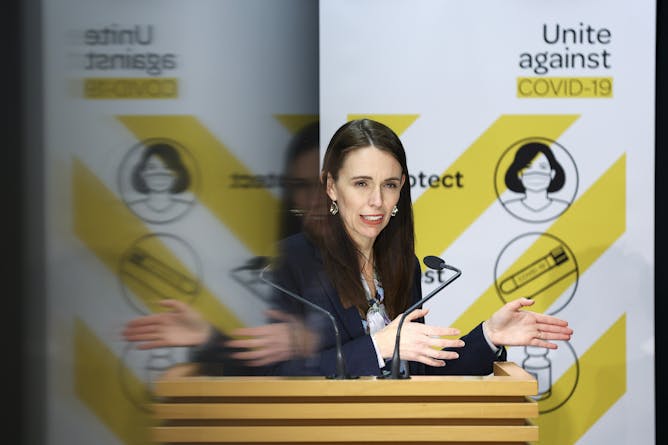
GettyImages
Suze Wilson, Massey University
Dealing with what have been called ‘wicked’ and ‘adaptive’ problems is a huge challenge for political leaders. A ‘clumsy’ response can be inevitable – and even desirable.
|
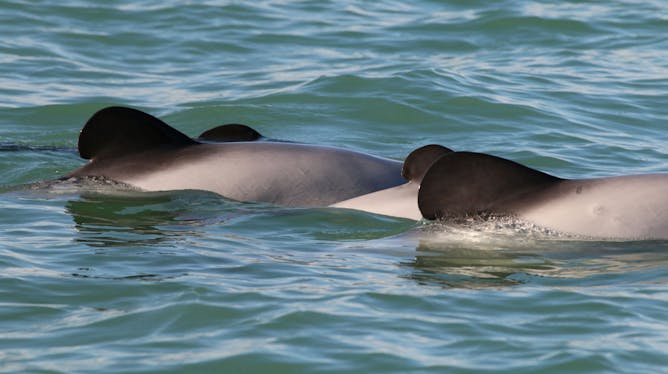
University of Auckland Department of Conservation
Rochelle Constantine, University of Auckland; Wendi Roe, Massey University
Māui dolphins are at risk of extinction. With a marine mammal sanctuary in place since 2008, the risk from fisheries is now largely under control. It’s time to take other threats more seriously.
|

GettyImages
Josh Van Veen, University of Auckland; Jack Vowles, Te Herenga Waka — Victoria University of Wellington; Jennifer Curtin, University of Auckland; Lara Greaves, University of Auckland; Sam Crawley, Te Herenga Waka — Victoria University of Wellington
One year on, the NZ Election Survey crunches the numbers on what drove Jacinda Ardern’s unprecedented 2020 victory.
|
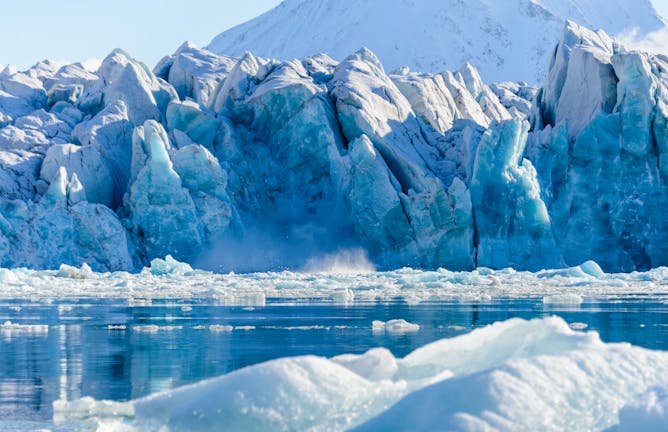
Shutterstock
Dan Lowry, GNS Science; Mario Krapp, GNS Science; Nick Golledge, Te Herenga Waka — Victoria University of Wellington
A new modelling approach improves projections of Antarctica’s future ice loss. It shows a low-emissions scenario would avoid the collapse of West Antarctica’s ice sheet and limit sea-level rise.
|

Shutterstock
Cherie Lacey, Te Herenga Waka — Victoria University of Wellington; Alex Beattie, Te Herenga Waka — Victoria University of Wellington
Kiwi consumers are increasingly experiencing personalised, targeted manipulation online, but the law has very little to say about it.
|

Hannah Peters/Getty Images
Stephen John Haslett, Massey University; Richard Arnold, Te Herenga Waka — Victoria University of Wellington
A statistically designed random sampling scheme, based on as few as 100 people, would give a very high probability of detecting if there are any COVID-19 cases and highlight at-risk hotspots.
|

Shutterstock
Marta Rychert, Massey University; Chris Wilkins, Massey University; Vinuli Withanarachchie, Massey University
Non-intoxicating cannabis products are safe and well tolerated by those who use them, so why not lower the clinical threshold for their manufacture and sale?
|
From our foreign editions
|

Amalie Dyda, The University of Queensland
There are reasons for concern, but there are also some protections in place.
| |

Chad Williams, Brandeis University
A scholar of African American studies explores how the former secretary of state, who died at 84, dealt with what WEB DuBois described as the ‘double-consciousness’ of being Black and American.
|

Zoë Hyde, The University of Western Australia
A new study in the United States found school reopening in late 2020 was associated with an increase in COVID-19 cases and deaths. But this was mostly the case where masks weren’t required.
| |

James Weinberg, University of Sheffield
Politics has become a low-trust, high-blame environment that has left public servants under near constant threat of attack.
|
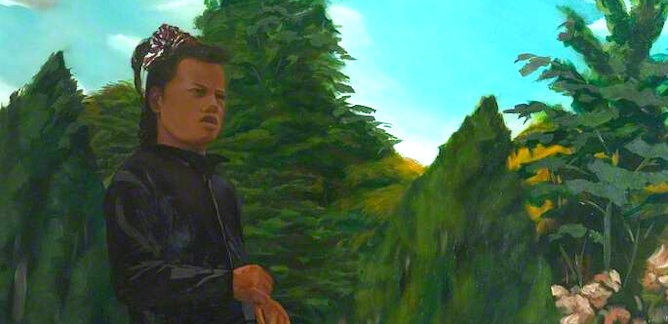
Richard Hylton, SOAS, University of London
The lie of the land: Britain’s hidden legacies of slavery in Eugene Palmer’s paintings.
| |
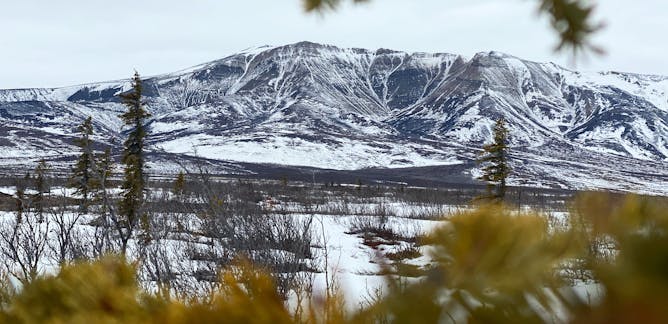
Elizabeth C. Turner, Laurentian University
A recent discovery of a sponge fossil may be the oldest known animal fossil, extending the evolutionary timeline by hundreds of millions of years.
|
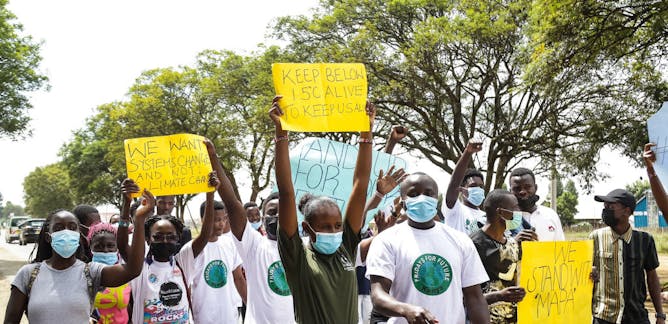
Victor Ongoma, Université Mohammed VI Polytechnique; Portia Adade Williams, CSIR-Science and Technology Policy Research Institute
African countries cannot be ignored, or just listened to. Their needs should shape the agenda.
| |
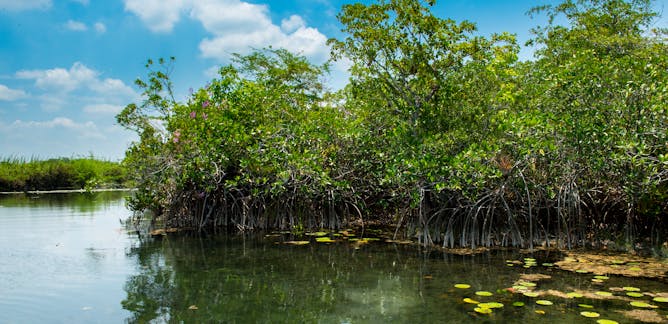
Sula E Vanderplank, San Diego State University
Mangroves grow in saltwater along tropical coastlines, but scientists have found them along a river in Mexico’s Yucatan, more than 100 miles from the sea. Climate change explains their shift.
|
|
|
| |
| |
| |
| |
| |
| |
|
|
|
|
|
|
|